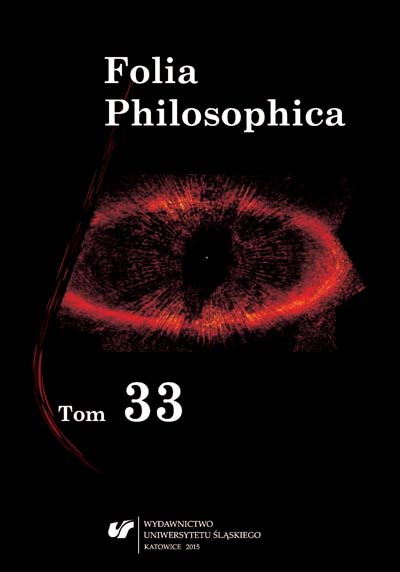Aktualność Sigmunda Freuda: aporie teorii queer i ich przezwyciężenie
The Relevance of Sigmund Freud: Aporias of Queer Theory and Their Overcoming
Author(s): Katarzyna SzmaglińskaSubject(s): Philosophy
Published by: Wydawnictwo Uniwersytetu Śląskiego
Keywords: psychoanalysis; queer theory; ethical sexual norms; relevance of Freud; aporias of queer theory
Summary/Abstract: Contemporary interpretations of psychoanalysis (among others A. Leder’s, A. Tauber’s) treat Freud’s thought as a philosophical one (anthropological model). Freud’s adoption of Kant’s transcendental assumption allows for such — unnaturalistic interpretation of psychoanalysis. Reconstructing the ontological and epistemological assumptions of the Viennese psychiatrist it may be proven that: first, psychoanalysis is congruent with queer theory in terms of significance of sexuality in the process of subject creation (“a crack in the subject”); second, at the starting point of both theories the instability of identity, including sexual identity, may be stated. It provides the ground for the comparison of these two conceptions. The queer theory is usually criticized for not presenting any unambiguous ethical conclusions with regard to limitations of human sexuality. In the present work, the author would like to illustrate that in a psychoanalytical model the aims of development, which queer theory is lacking, may be indicated and, as a result, also certain moral restrictions on various forms of sexual “self-expression” may be observed. The specific tools of Freud’s therapy allow for ethical interpretation of the message that psychoanalysis offers and that may be reduced to the individual’s understanding of the necessity for self-restriction of his/her sexuality — the self restriction which is more or less consistent with the solutions of contemporary psychiatry and sexology expressed in a partnership norm formula.
Journal: Folia Philosophica
- Issue Year: 2015
- Issue No: 33
- Page Range: 285-309
- Page Count: 25

